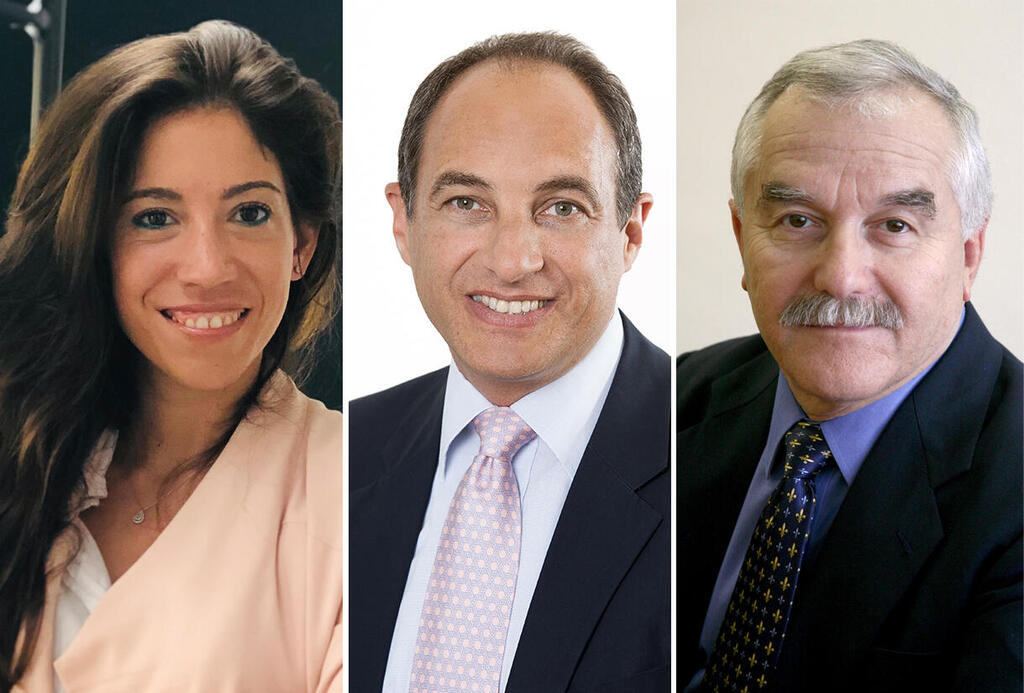“The key to survival is focusing on efficiency – working lean,” Lisya Bahar Manoah, Partner at Catalyst Funds, advises companies uncertain about what the year 2023 will bring. “If you are raising capital, make sure that the round size covers the next 24 months. It is also a good time to consider opportunistic M&A prospects.”
1 View gallery


From left: Lisya Bahar Manoah, Edouard Cukierman, Yair Shamir
(Photo: Catalyst Funds)
Name of fund/funds: Catalyst Funds
Total sum of fund: $450M
Partners: Yair Shamir, Edouard Cukierman, Lisya Bahar Manoah, Boaz Harel
Notable/select portfolio companies: Satixfy (SATX), Taboola (TBLA), Mobileye (MBLY), ARBE 4D (ARBE), TUFIN, Nexar, Addionics, Raziel, Lutris, Curalife, Omrix
Partner Lisya Bahar Manoah joined CTech to share insights on what to expect in the VC space as the year comes to an end.
If 2020 was the year of the pandemic, and 2021 was the year of records, how would you define 2022 in the VC sector?
2022 is the year that brought hi-tech back down to earth. For investors, it is an important time to reflect, examine our existing portfolio and actively support our companies as they go back to their fundamentals – focusing on efficiency and product-market fit, building a lean team, extending the runway, and building a strategy for M&A.
2022 also brought the importance of the metric of DPI – Distributions to Paid in Capital to investors because it represents actual returns of capital, net of fees and expenses.
2022 reminded us that what’s happening now won’t last forever. Even now, this crisis is temporary.
Who are the big winners of 2022 and why?
In general, each high-tech company that focused on product-market fit, demonstrated a clear ROI, prioritized efficiency, and did not rely on extensive capital was the winner. Some sectors have received more funding compared to others like climate-tech and health-tech.
Who are the big losers of 2022 and why?
The losers were the high-tech companies that burned cash too quickly and the ones who preferred not to adjust to the new market environment.
Almost every sector dropped but some of them have been more impacted: Ed-tech, Smart mobility, Fin-tech, E-commerce and Ad-tech.
What do you expect in the VC sector in 2023? Will new funds be raised? Will you sit on the fence waiting to see the direction in which the markets head?
First, and the most important step is to support and invest in our existing portfolio companies. We need to make sure that they have enough cash in the coming 2 years. Working with them proactively is essential: planning the budget, focusing on efficiency, working leaner, looking for new talents with reasonable costs, leveraging their growth through strategic partnerships, and preparing the path for M&A.
At Catalyst, we see ourselves as long-term investors and for new investments it’s important to conduct rigorous due diligence that puts focus on a company’s intrinsic value i.e. on product, revenues and real growth potential. We will continue to invest and believe good opportunities will appear in this market environment.
What global processes will affect (positively and negatively) the Israeli market? Recession, interest rates, inflation, Russia, China?
The uncertainty is high, especially on geopolitical events; it puts the ecosystem on hold globally. The growth of Israeli startups is affected.
Within this challenging environment, we will see great opportunities. As investors, we need to have more courage, gather the right information, and be quick decision-makers.
How should different companies (large, medium, early-stage) prepare for the coming year?
The key to survival is focusing on efficiency – working lean, reducing the burn rate, focusing on clear ROI. Where possible, companies can adjust strategies to minimize impact on the top-line, for example by targeting customers in markets that are less affected by the recession.
If you are raising capital, make sure that the round size covers the next 24 months.
It is also a good time to consider opportunistic M&A prospects.
What will become of the dozens of unicorns born last year? Will many of them lose their status due to downrounds? Is the valuation more important than the sum raised in their next rounds?
The companies that went to IPO are well funded; they have the cash to make a new strategy. Some unicorns who have raised by very high valuations and not exited yet, will have challenges to reach a profitable exit, at least in the short term. They might raise capital to stay private longer than expected.
What sectors in high-tech should we look out for in the coming year – and why?
At Catalyst, we have been investing in diversified sectors – in energy, data analytics, space-tech, healthcare, cyber, and agro. The diversity itself is reducing the risk exposure. In addition, we are also doing secondaries, which might increase during the crisis.
The high-tech funding will slow down but it doesn’t change the fact that technology is still a primary catalyst for change in the world.
HR: Do the layoffs, those that have already happened and those that are coming, help to fix in any way the distress experienced by companies over the past 2-3 years? Will we stop seeing fantastic employment conditions or will the pressure from employees return once we see the market rebound.
Layoffs will eventually not fix the company’s problems, it’s only small part of it.
The company’s focus should be on efficiency, working lean and disciplined.
Layoffs have created a new pool of talented, hardworking professionals. There will always be demand for good talent.
Also, it’s worth noting that top-tier employees that have been laid off are also not in a rush to start new jobs in new firms with lower salaries. Some of them received good compensation packages, which gives them some time before they will look to come back to the market. Some of them are selling their options which might also influence the market.
Addionics, Nexar, CuraLife – Catalyst’s notable portfolio companies
Addionics
Sector: Battery / Energy
Description: Addionics develops next generation batteries by innovating the battery structure and enabling higher energy density and lower charging time. The company’s core IP for developing the smart 3D structures is augmented with an AI-based structure optimization algorithm that can predict and determine the best structure for a given application. By doing so the battery capacity is optimized and presents a higher efficiency and a lower competitive price.
Founders: Moshiel Biton, Vladimir Yufit, Farid Tariq
Founding year: 2018
Number of employees: 43
Explanation behind investment:
The global lithium-ion battery is a fast-growing market that is projected to grow from USD 40 billion in 2021 to USD 120 billion by 2030 and electric vehicles are projected to make up 90% of battery demand over the next two decades. Addionic’s solution provides a battery that can store more energy and charge quickly which can revolutionize the battery industry. Addionics has working relationships with many leading companies in the automotive industry. The company’s management team is experienced and highly skilled.
Nexar
Sector: Smart car / AI
Description: The company manufactures smart dashcams and develops a platform to enable new vision-based applications. Services include accident report with insurance integration, vision-based safety alerts (beyond line of sight), fresh street-view, and road monitoring apps.
Founders: Eran Shir, Bruno Fernandez-Ruiz
Founding year: 2015
Number of employees: 100
Explanation behind investment:
Catalyst believes that Nexar has a genuine breakthrough technology, which will have a big role in the development and improvement of Advanced Dashcam business. The global dashboard camera market and the data sale are rapidly growing industries, expected to be worth billions of dollars. Nexar has a growing number of active customers include notable insurance companies, departments of transportation, autonomous driving specialists and leading automotive OEMs.
Description: CuraLife develops, manufactures, and distributes a natural supplement for diabetes named CuraLin. CuraLin, differently than other diabetes supplements, presents an instant effect on glucose levels from the first day, while competitors have a delayed effect of several weeks or months.
Explanation behind investment: The global diabetic population is growing rapidly. Awareness to healthy lifestyle, fitness and routine testing will have an additional positive effect for the diabetes market. CuraLife is the only supplement company that has created a full ecosystem surrounding their product.
Credit: Source link


Comments are closed.